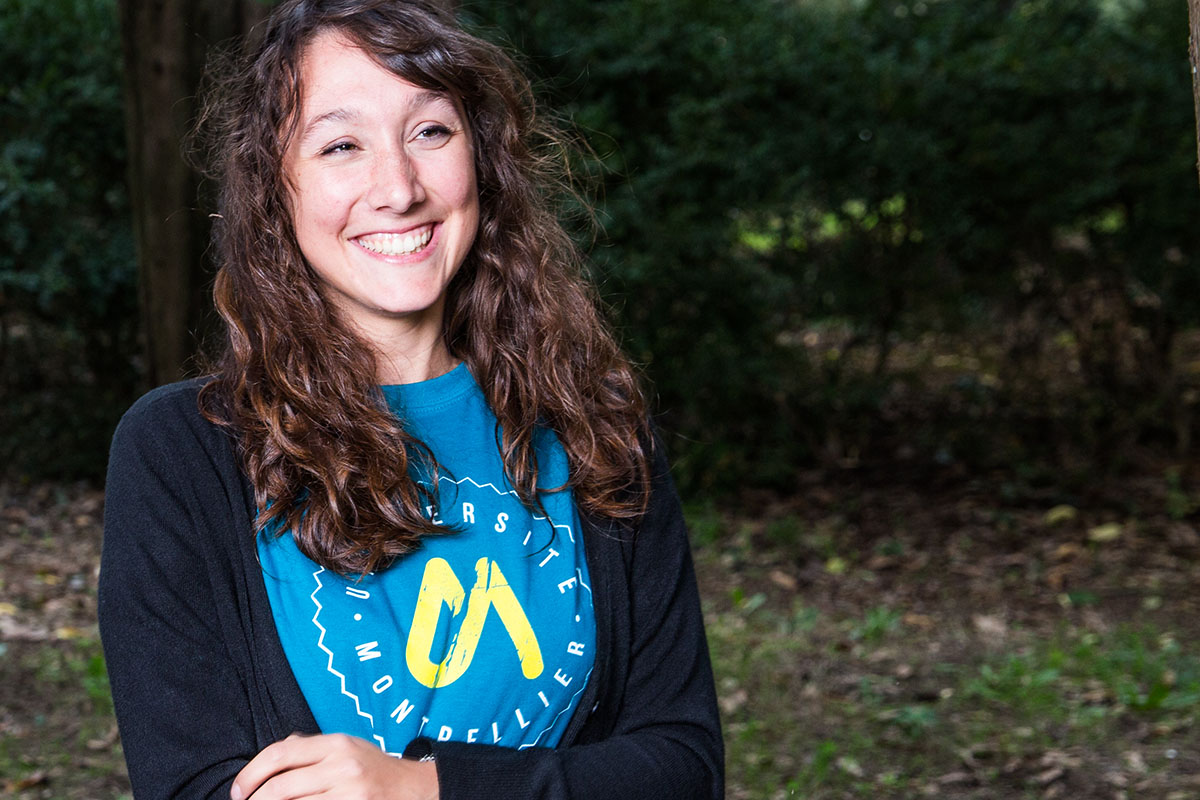Navigate your career path more effectively with Compas
Starting in the first semester of 2022, UM will recruit and train student ambassadors each year to work with high school students in the academy and help them better prepare for their career plans. This initiative is part of the Compas program led by Paul-Valéry Montpellier 3 University and the Rectorate.
"Student ambassadors are the best liaisons with high school students because they are currently experiencing their own university years and, with prior training, are able to explain their university experience as honestly as possible, " explains François Mirabel, director of SCUIO-IP and dean of the Faculty of Economics. With this in mind, the University of Montpellier will recruit and train 100 students each year to advise and support high school students in the academy in choosing their future path. " For this first year, we are recruiting 20 students at UM, and there will be 30 next year. The remaining 70 will come from other institutions," says the director.
A smoother transition from high school to college
This initiative was inspired by one implemented several years ago for first-year health studies, after SCUIO-IP noticed private health prep schools lobbying high school students. "This was a real factor of social inequality, which also overshadowed the effectiveness of the free tutoring available at UM, which often leads to better results than those achieved by students in private preparatory schools." UM will extend this initiative to all courses at all higher education institutions involved in the Compas project.
Compas, which stands for "constructing and developing your plan for accessing higher education," is a new guidance support system for high school students, led by Paul-Valery Montpellier 3 University and the Regional Education Authority, in partnership with the universities of Montpellier, Nîmes, and Perpignan, the School of Architecture, the École des Mines d'Alès, and the eight networks made up of the 127 high schools in the academy. This 10-year project, developed as part of the third phase of the "PIA 3" investment program for the future, has secured €5.6 million in funding to achieve its objectives."The key point is to improve efficiency in terms of guidance and to have a more refined and better structured relationship with high school students, head teachers, guidance counselors, etc.," continues François Mirabel.
Greater efficiency for greater equality
The ultimate goal of the program is to achieve greater equality for all high school students. Social equality by providing better information about existing support programs. Territorial equality by reaching out to the most remote high schools, with the help of digital technology if necessary. Finally, gender equality by breaking down gender stereotypes that still have too much influence on career choices. " Every student must find a purpose for their studies, to plan for their student life and future professional life."
To achieve this equality, each partner has proposed one or more initiatives. "The one we are supporting requires a significant investment, which we are happy to provide," emphasizes François Mirabel, whose department will be responsible for recruiting and training students. "They will need to be able to advise students beyond their own field of study, covering topicssuch as structuring university studies, support mechanisms, support services, student life, and more. They will also be asked to make a short video in order to "build up a library of testimonials for high school students over the years." The director is even considering introducing a certification to enhance the value of this training.
9 actions, 5 actors
Paul Valéry, for its part, is proposing to produce 1,000 portraits of students in SHS LLA* and immersion and exchange experiences with virtual visits to institutions or "Direct-Live de l'orientation" (live career guidance). The education authority responsible for monitoring high school students' progress will also be tasked with training and equipping career guidance counselors and setting up a digital workspace dedicated to career guidance for high school students.
While the University of Perpignan has chosen to focus on combating discrimination, the University of Nîmes will be responsible for addressing the issue of educational continuity between high school and university. This is a real necessity for François Mirabel, who deplores the lack of communication between secondary and higher education "on what students can expect in terms of prerequisites, skills, and knowledge when they enter university. Working methods, autonomy, time management... All these elements must be discussed between the teaching teams." LIRDEF, LAGAM, and Cereq, three partner laboratories in the project, will evaluate the actions, "an essential step to enable us to evolve, which must be done in a scientific and autonomous manner,"concludes François Mirabel.
*Humanities and social sciences, languages, literature, and arts.
